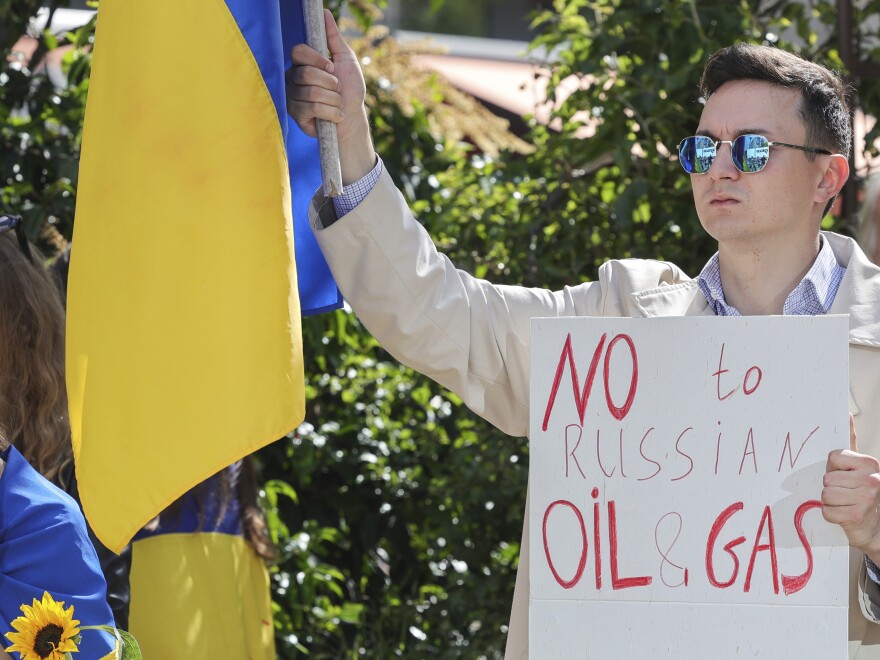Updated May 31, 2022 at 10:16 AM ET
After weeks of intense negotiations, European Union leaders have agreed to ban most oil imports from Russia. The move is part of the bloc's newest sanctions package on Moscow, which had been held up by a few member states like Hungary that are heavily reliant on Russian oil.
The EU says it will ban "most" imports of Russian oil to the bloc, but what does that mean?
EU Commission President Ursula von der Leyen said on Tuesday morning that this embargo would apply to around 90% of oil imports from Russia to the EU by the end of this year. About two-thirds of imports would be blocked in the near term, Charles Michel of the European Council said.
When this round of sanctions was announced a month ago, Von der Leyen said the EU would ban all Russian oil. EU member states about the details since then, with one member particularly staunch in opposing the harshest measures.
Putin's ally inside the European Union
Viktor Orbán, prime minister of Hungary and a friend of Vladimir Putin, was largely responsible for the delay in and changes to this latest round of sanctions. He threatened to tank the entire package, a scenario that would have been a big embarrassment for the EU.
Orbán is concerned about an EU-wide oil embargo on Russia because Hungary receives more than 60% of its oil from Russia via a pipeline, but Carnegie Europe's Judy Dempsey says that Orbán has many reasons to block the EU's actions on Russia — including weakening the EU itself from within.

"You just wonder how so many of the member states tolerate this maverick politician who is very devious and who has intentions to weaken the EU, which suits Russia" says Dempsey.
In the end, Orbán forced the EU to weaken what was intended to be a complete ban on Russian oil into a ban solely on sea shipments of that oil. Pipeline deliveries from Russia, which benefit Hungary, Slovakia, and the Czech Republic, will continue to flow.
Europe will have to replace the seas shipments of oil from other countries, which doesn't appear to be a complicated problem. A tougher task will be for Europe to wean itself off of Russian natural gas.
The EU depends on Russia for around 40% of its natural gas and will need to continue importing that gas in the short-term because its economy depends on it. Individual countries like Germany are working hard to wean themselves off this gas supply, but that could take years.
Other sanctions in the latest package
This sixth round of EU sanctions also includes an asset freeze and travel ban on individuals close to the Kremlin. It also removed Russia's biggest bank — Sberbank — from SWIFT, the global financial transfer system. Three big Russian state-owned broadcasters will also be prevented from distributing their content within the EU.
The bloc also agreed on providing Ukraine with nearly $10 billion in assistance to help rebuild the country's economy.
Copyright 2022 NPR. To see more, visit https://www.npr.org.




